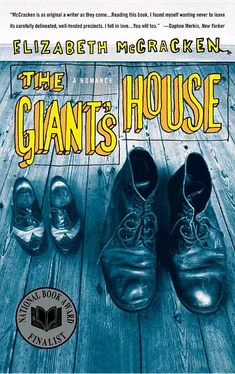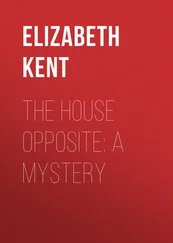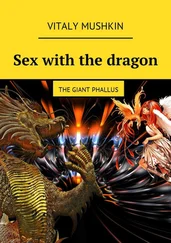Caroline had packed us a lunch, full of odd sweet sandwiches — she had a weakness for chutneys. “I’ll miss you,” she said to James. “You’ve never been away from home before.”
“I was in the hospital,” he said. “That was four months.”
“That’s different,” said Caroline.
“Give me a kiss, Alice,” James asked. He was standing up, so a kiss from Alice was an awkward operation. Oscar lifted her up into the air, and she smacked her mouth against James’s cheek, using every muscle in her face, the way children do.
“I’ll send you postcards,” he said, and then we climbed in my Nash, and Oscar drove us to the station.
The circus had offered to hire a private railroad car for James, but he’d turned it down, and the train people had agreed to remove seats in the parlor car to make room. We’d both packed lightly, one case apiece, and Oscar dragged them on board for us.
“We can get a porter to do that,” I said.
“Oh, save your money,” said Oscar. The porter gave him a dirty look. “Besides, I want to see the inside of the train. I have half a mind to just stay on board, go with you.” James followed him, bent over inside the train, which was wide but not tall enough. In the back of the car we found the missing seat; it was on the aisle, so I sat at the window; James sat down so that his legs could keep the businessman a row ahead company.
Oscar threw our bags into the rack overhead.
“I have half a mind …” he said again, but then the conductor tapped his shoulder.
“We’re ready to go, sir,” he said, and Oscar said, “Good-bye!” and almost ran off the train.
The line was advertised as “The Fun Train”; an accordion player walked up and down the aisles, asking for requests and singing. He didn’t stop playing even when he leaned over to us, saying, “What can I play that will make you happy?”
As we pulled into Providence, James leaned across me toward the window.
“Rhode Island,” he said under his breath, as if Rhode Island were someplace he’d dreamed of seeing all his life. But every station the train pulled into, every little Connecticut town, stunned him equally. Another place he’d never seen, another place that was not Cape Cod.
Hours later, we hit the tunnel that led to Grand Central. A shame, I thought, that trains couldn’t just ride straight into the city, proud and unhidden. Trains had to sneak up on Manhattan, underground, in the dark. I felt like an uninvited guest.
We came to a stop, and let everybody else disembark first. A porter came to get our bags. We followed him.
James stepped out of the car onto the platform. Then he unfolded his body, planted his cane, stood his full height. You could hear people suck in their breath, an unmistakable sound that meant, we knew he was tall, but this?
Somebody said, “Look up,” and then took a flash picture. Somebody else whispered, “Christ.” The circus people had called the newspapers. Maybe we’d expected to be met, maybe we thought that there’d be a band in the station, cheery men like the accordion player, uniforms, music stands. But the silence, the intake of breath, one or two quiet oaths and the splash of a flashbulb were James’s “Hail to the Chief,” played without variation wherever he went in the city.
A thin gray man in a suit stepped forward.
“Jim,” he said, in the warm tone of an official stranger. “Pat Anderson. I work publicity. Glad we got you out here, son.”
“Nice to meet you,” said James.
“First time in the city?” a reporter asked.
James nodded.
“Like it so far?”
James laughed. “Haven’t seen enough to complain yet.”
“You guys’ll get a chance to talk later,” said Pat Anderson to the reporters. “Let’s get you to the hotel.” He looked at James’s cane. “There’s an elevator to take us up to street level.” A porter came behind us with our bags.
“I don’t like elevators,” said James. He looked for me, beckoned me over. “This is Miss Cort,” he said. “She’s come along, too.”
“A freight elevator,” Pat Anderson explained to me. “More than tall enough. Then we’ll catch a cab, get you settled.”
James shook his head. “I’m not sure a cab—”
“Checker’ll do the trick. Miss Cort”—he turned to me—“will ride in front. We’ll follow. We’re bound for the Hotel Astor.”
“You’ve thought this through,” I said.
He tipped an imaginary hat to me in reply.
He was right — a Checker cab was fine, James sitting diagonal in the back, me next to the driver. Pat Anderson took a second taxi.
Clearly the employees at the Astor had been briefed: a very tall boy is coming; be polite. But the people on the street — the cabdriver, customers coming out of the hotel restaurant — had not been warned. We were used to it in our town, where the tourists stared at him the way they stared at everything. James was Plymouth Rock, he was the ocean, he was one more thing we had and the Midwest didn’t. Here the stares were serious, weightier. These people had been surprised at home.
It isn’t that I ever forgot that James was tall. No way to forget, not when everything in the average-sized world conspired to remind both him and others. But I could forget that it was something that people would not be prepared for, that the sight of a body like his would cause them to think: but that’s not possible. It can’t be true . You cannot imagine what over eight feet tall means until you see it. The tallest people we see on the street — the men who are asked constantly about basketball and weather — are more than a foot shorter.
“Stilts?” the cabdriver asked hopefully.
“No,” said James, almost enjoying it. Maybe he did. “All me.”
I heard a mother say to her child as we stepped into the lobby, “No, dear. It’s not real.”
They’d thought of everything, these circus people. James’s room had an extra-large bed, a large wooden chair, a bowl of fruit; my room adjoined, a nice bottle of wine on the dresser.
“Boy,” James said. “I had no idea this was circus life.”
“They’re trying to convince you to sign a long-term contract,” I said, examining the fruit, so lustrous and beautiful I’d first thought it wax. “Sign on, and then it’s boxcars and pup tents.”
“No, no,” said Pat Anderson, walking through the door. “Just want you comfortable. Got the bed specially delivered. Thirteen feet — that’s long enough?”
“More than,” said James. “Bigger than my bed at home.”
“Well,” said Pat. “This is a luxury hotel. Here, I brought you this.” He thrust a rolled-up magazine at James. “Program. You’re featured. Page twelve. Also some pub shots.” He reached into his briefcase and pulled out a pile of glossy photographs, then handed one to me and one to James.
There were two shots on one sheet. The first was James standing up in the Stricklands’ house, his head just missing a light fixture, Oscar posed beside him to show scale. James slouched to fit, and steadied himself with a hand on the ceiling. The other was a baby picture someone had faked up, neither James nor his parents. They’d taken a dark photo of a couple in a garden, and an overexposed photo of a baby sitting on a patch of grass, and married them in what was once called a composograph. The baby was ludicrously large, as big as the grown-ups, and the artist had not been fastidious in his work. You could see the white edge of what had surrounded the baby in his native snapshot, a strange halo separating him from the dark-haired couple who looked only at the camera.
“Doesn’t look like anyone I know,” James said.
“No,” said Pat. “I’m not so crazy about that kind of fake, but.” He sat down in a wing-backed armchair by the door, bounced a little, and rubbed at the upholstery; he leaned back and stuck his legs out, taking that elegant chair for all the comfort it was worth. I guessed he wasn’t used to luxury hotels himself. “So, listen. Order anything you want on room service. We got the money, you might as well spend it. The rest of the outfit’s due at the end of the week. You folks gonna sightsee tomorrow?”
Читать дальше












